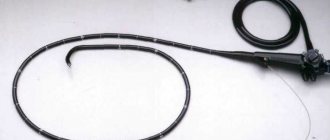1.General information
Modern medicine knows a monstrous, incalculable number of clearly defined and described symptoms, i.e. objective signs of a particular disease. At the same time, with the accumulation of statistical data and research results, as well as with the development of the theoretical paradigm, the number of symptoms classified as pathognomonic (this term implies an unambiguous sign that is always observed in a given disease and is not found in any other diseases) is rapidly and steadily decreasing. The tendency to blur the informativeness of diagnostic signs is to some extent promoted by both pathomorphosis (changes in the typical clinical picture of diseases over the years and decades), and the tendency of modern man to self-medicate, which often “blurs” or distorts the symptoms.
There are almost universal symptoms that accompany most known diseases - for example, headache or “general malaise”, i.e. decrease in subjective well-being. Based on these complaints alone, it is impossible not only to make an accurate diagnosis, but even to suggest the field to which it will relate (neurology, endocrinology, virology, and many others). Other symptoms seem to more clearly indicate the most likely source of the problem, but upon closer examination it turns out that not everything is so simple here either. Such “understandable” but sometimes very misleading symptoms include, in particular, bitterness in the mouth.
A must read! Help with treatment and hospitalization!
How is GERD diagnosed?
If symptoms of reflux pathology appear, you should contact your family doctor or directly a gastroenterologist. First of all, the doctor carefully studies the clinical picture and complaints of the patient. Often the diagnosis can be made only by the clinical picture, without additional research. Sometimes the patient is prescribed additional diagnostic procedures, namely:
- endoscopy is the most informative way to diagnose GERD , which consists of visually studying the structure of the esophagus (helps determine narrowing, the presence of erosions and ulcers, changes in the composition of the epithelium);
- daily monitoring of the pH level in the esophagus - helps to assess the nature and synchronicity of the reflux of stomach contents into the esophagus;
- X-ray examination of the esophagus with barium - allows you to identify narrowings and hernias of the esophageal passage of the diaphragm.
Interesting fact: a healthy esophagus is able to push food into the stomach when swallowed in any body position, even when a person is lying upside down. And all thanks to proper peristalsis (muscle contractions).
2. Reasons
Even a non-specialist in the vast majority of cases associates a bitter taste in the mouth with a pathological state of the digestive system, more precisely, the liver and/or biliary tract. Indeed, the biochemical and physiological evolution of higher mammals has led to a strange paradox. As you know, bile produced by the liver is absolutely necessary for the digestion of food, be it the simplest food or exquisite delicacies. But at the same time, bile itself has a sharp unpleasant odor and an unbearably bitter taste, so normally it goes directly into the intestines (starting from the duodenum) and does not come into contact with the taste buds of the oral cavity. However, in a number of abnormal or clearly pathological conditions and processes, bile stagnates, is thrown into the stomach and esophagus, its taste is felt in the mouth - in a word, that same bitterness appears. In some cases, this may be associated with the consumption of too fatty foods or simply with banal overeating (the bitterness disappears as the body copes with the overload), in others it serves as one of the diagnostically significant signs of a serious gastroenterological disease. Thus, the most likely groups of causes of bitterness in the mouth are:
- diseases and any congestion in the biliary (bile) system, i.e. all kinds of dyskinesias, anomalies or pathologies of the bile ducts, cholelithiasis, pathology of the gallbladder, etc.;
- liver diseases: hepatitis, oncopathology, cirrhosis, etc.;
- diseases of the gastrointestinal tract with reflux syndrome (reflux into the esophagus): gastritis, gastroduodenitis, cancer of the pancreas and other gastrointestinal organs.
However, the above reasons, with all their diversity and, indeed, the greatest probability, do not exhaust the list of possible sources of bitterness in the mouth. You should also add to it:
- allergic reactions (in particular to dental materials);
- chemical intoxication, incl. taking certain groups of medications with hepatotropic side effects;
- inflammatory processes (especially with a purulent component) in the oral cavity;
- the presence of worms;
- endocrine disorders;
- infections;
- dysbacteriosis;
- hormonal changes associated with gestation (pregnancy) or menopause;
- deficiency or imbalance of a number of microelements necessary for the body (B vitamins, zinc, etc.);
- smoking (the more cigarettes smoked per day, the more stable and intense the bitter taste in the mouth and lips), as well as withdrawal symptoms when quitting smoking, which can be controlled with a special diet and vitamin therapy;
- alcohol consumption;
- abnormal mental states (depression, chronic stress, etc.).
Visit our Gastroenterology page
Reflux esophagitis: etiology and pathogenesis
GERD is a chronic disease that occurs when the lower esophageal sphincter, also called the “muscle valve,” does not function properly. Gastroesophageal reflux occurs when stomach contents (undigested food, acid) reflux into the esophagus. Frequent contact of the esophageal mucosa with the contents of the stomach causes inflammation. Gastric juice literally dissolves the esophageal mucosa.
Important information! The World Organization of Gastroenterologists has recognized GERD as the most common disease of the 21st century. According to official data, about 50% of the world's population faces this disease.
The main cause of GERD is insufficiency of the lower alimentary sphincter, which develops due to a general decrease in tone or excessively frequent relaxation of the LES not associated with swallowing. Relaxation of the LES (lower esophageal sphincter) can be provoked by increased pressure in the peritoneum or subthreshold pharyngeal stimulation.
3. Symptoms and diagnosis
Bitterness in the mouth is the only and isolated symptom very rarely (in fact, never). It is extremely important to monitor and then inform the doctor about what other symptoms the bitter taste is combined with, and on what situations and factors its appearance depends. Thus, accompanying symptoms most often include heartburn, belching, nausea and vomiting, all kinds of pain and discomfort in the abdominal area, flatulence, fever, as well as that same “general malaise.” Factor-conditions can be the time of day (for example, bitterness in the morning, characteristic of hepato- and cholecystopathology), food intake in general and certain foods in particular, physical activity, regular medication intake, etc.
Bitterness in the mouth can occur sporadically, for easily explainable situational reasons (for example, food poisoning or gross abuse of fatty foods), and quickly pass without a trace. But if it appears frequently or becomes constant, you should definitely consult a doctor: timely treatment can literally be life-saving in terms of early diagnosis of, say, cancer.
It is most reasonable to start the examination with a gastroenterologist: if necessary, having ruled out “his” pathology and suggesting the most likely “target” of the lesion, he will certainly refer the patient to the appropriate specialized specialist.
It is impossible to indicate the standard or most typical diagnostic methods in this case: everything is determined by the specific clinical case. Depending on the situation, you may need almost any combination of methods from the rich arsenal of modern diagnostics: radiography, endoscopy, ultrasound and tomography, laboratory analyzes of biological fluids (clinical, bacteriological, biochemical, immunological, etc.).
About our clinic Chistye Prudy metro station Medintercom page!
Preventing heartburn
- Eliminate heavy lifting.
- Sleep at least 7 hours.
- Do not bend over or go to bed for 1.5-2 hours after eating.
- Avoid corsets, bandages and tight trousers.
- Quit smoking, don't abuse alcohol.
- Get rid of extra pounds.
- Don't skip preventive examinations.
- When the first complaints appear, consult a doctor.
- If you have gastrointestinal diseases, visit a gastroenterologist 2 times a year.
- Control of emotional state, help from a psychologist.
Taking into account the increasing number of cancers, which at the initial stage manifest themselves with minimal symptoms, recurrent or constant heartburn cannot be ignored. Contact the First Family Clinic of St. Petersburg. You will undergo the necessary studies, and gastroenterologists will prescribe effective treatment.
4.Treatment
It is equally unrealistic to describe all specific treatment methods, or at least outline a general methodology for eliminating the bitter taste in the mouth. It should be remembered that this is not a disease, but a symptom, and most often not the only one, therefore the further therapeutic strategy will be determined by the results of the examination. In some cases, it is enough to give up bad habits or normalize your lifestyle, in others, long-term and complex highly specialized treatment may be required, and sometimes bitterness in the mouth becomes a kind of “premonition” of a clearly necessary surgical intervention.
One way or another, of course, this phenomenon should not be ignored.
Treatment of heartburn
- Correction of the diet - do not overeat (especially at night), the last meal is 2.5-3 hours before bedtime, the interval between meals is 4-5 hours, the portions are small.
- Eliminate from the diet all foods that cause heartburn - fatty, fried, spicy, citrus fruits, coffee, alcohol, fresh vegetables and fruits, avoid chewing gum (increases the secretion of gastric juice).
- Allowed dishes: soups, boiled lean meat and fish, porridge (oatmeal, rice, buckwheat), yoghurt, milk (low-fat sour cream, ice cream, cottage cheese in limited quantities), baked apples, boiled vegetables.
- Sleep hygiene is to sleep on your left side with the head of the bed raised. Elevating your upper body by 15% will reduce your risk of heartburn by 50%.
- Symptomatic therapy - before meals, take drugs that neutralize acid (antacids, alginates). It should be remembered that some of them (for example, Almagel) are not recommended for children, and the duration of their use is limited.
- Correction of high gastric acidity and treatment of GERD - proton pump inhibitors.
- Improving the motor function of the gastrointestinal tract - prokinetics (required as prescribed by a doctor; they have serious side effects).
- Antibacterial therapy - when Helicobacter is detected, two or three antibiotics are combined.
- Means for improving digestion - enzymatic preparations.
- General strengthening therapy - vitamins, probiotics.
- Surgical treatment - for severe GERD, gastric ulcers that are refractory to drug therapy.
Drugs for the treatment of heartburn and the underlying disease are selected on an individual basis. Not a single, even the most effective drug will help get rid of heartburn without following a diet.








